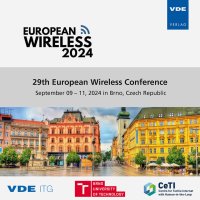Quantum Key Distribution Protocol with Noises and Blind Eavesdroppers
Conference: European Wireless 2024 - 29th European Wireless Conference
09/09/2024 - 09/11/2024 at Brno, Czech Republic
Proceedings: European Wireless 2024
Pages: 6Language: englishTyp: PDF
Authors:
Birhanu, Samuel Leyikun; Habibie, Muhammad Idham; Bassoli, Riccardo; Fitzek, Frank H. P.
Abstract:
Cryptography is widely used in various applications to ensure the security of communication. However, due to the large number of users connected to the network, there is a significant challenge for researchers to enhance security. Quantum cryptography, with its well-known protocol called Quantum Key Distribution (QKD), is a revolutionary approach that leverages quantum attributes to enhance the security of communication networks. QKD relies on quantum bits, or qubits, to ensure safe data transmission and encryption. Instead of utilizing bits as 0 or 1 as a classical does, qubits use the polarization of states between 0 and 1, leveraging superposition for enhanced security. However, two parameters should be considered: 1.) External conditions can introduce noises in QKD, and 2.) The Eavesdropper with a blind detection can decode the shared keys. This paper aims to develop a noise model using an eavesdropper in conjunction with Bernoulli algorithms to evaluate the effectiveness of the QKD protocols. In this work, we have conducted simulations of the BB84, B92, and E91 protocols with added noise, along with the blind Eavesdropper. Our findings indicate that noiseaffected techniques do not consistently have a linear impact on the decoding outcome. Despite embedding the Bernoulli distribution, the eavesdropper also has a small success probability to decode the information.


